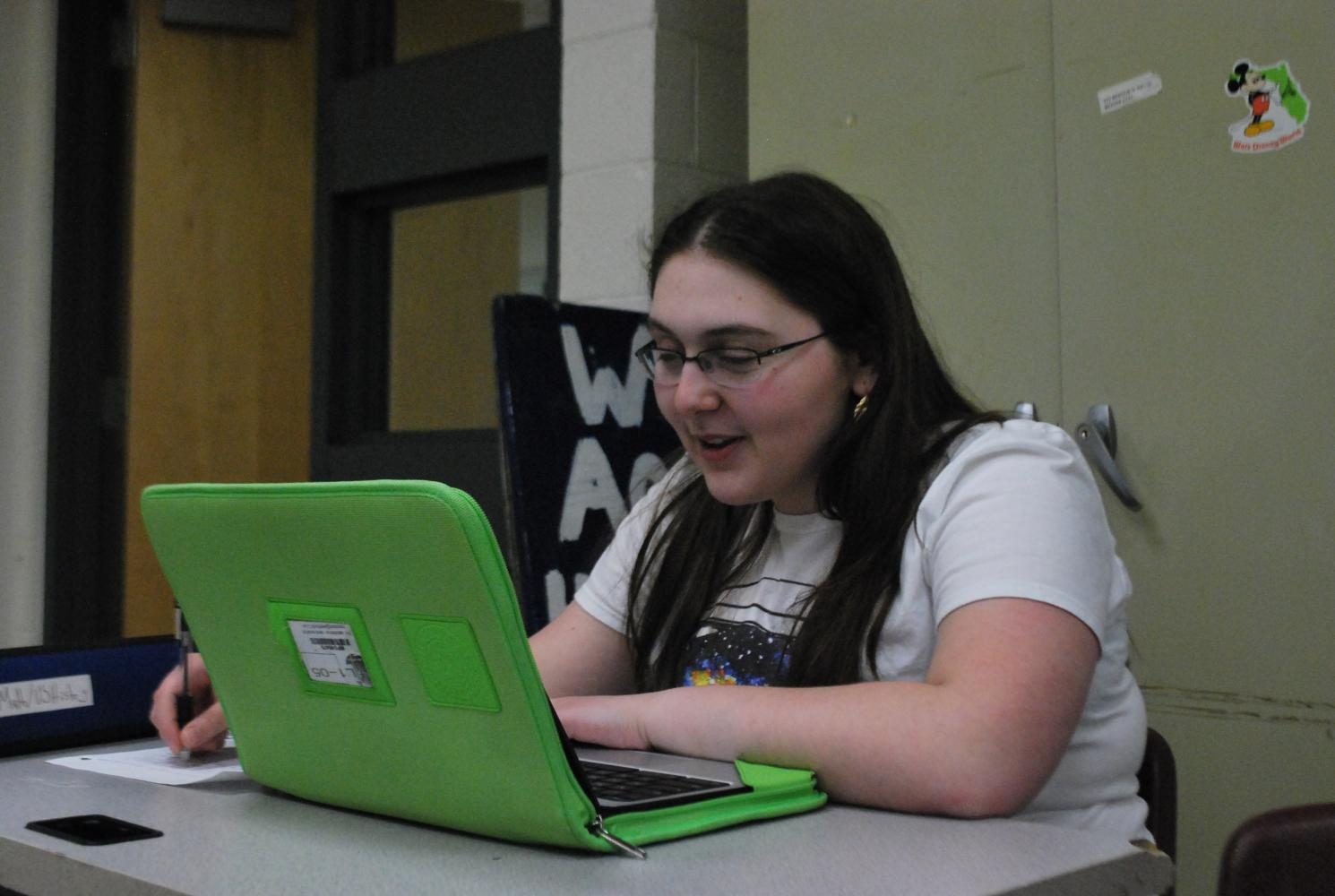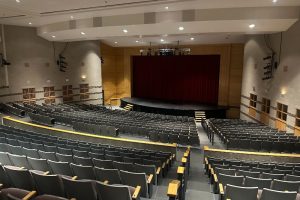One to World opens up a world of possibilities in the classroom
Junior Naomi Szabo-Wexler uses a Chromebook from the loaner station.
May 30, 2017
Westford Academy has expanded its horizons in the world of technology, opening up the classroom to the computer screen. Starting in September of 2016, WA introduced a new program to its freshman class, One to World. By incorporating the regular use of technology into the classroom, the One to World program has transformed how the freshman class learns and is taught new material.
Chromebooks have been given to ninth grade students to use throughout the school year, and loaned laptops are available for upperclassmen to borrow for specific classes. Freshman teachers have incorporated the Chromebooks into their classes at their own discretion. According to teachers, despite each having their own unique approach and style, One to World so far has had a positive impact in the classroom.
English teacher Kim Hart has found that there has been a learning curve this year with the addition of the Chromebooks. When asked what she believes is the driving factor behind the new program, Hart shares a similar opinion as others at WA.
“I think a lot of people understand the importance of technology as a 21st century skill, just being able to use technology and access it. I think the goal is for it to enhance instruction for students and teachers alike,” Hart described.
Knowing each student has access to the same applications, Hart has found certain interfaces helpful in her classroom. Online tools such as Google Documents and Classroom have been beneficial to Hart when teaching process writing.
Hart explained, “I can be in there, writing through Google Docs. I’m providing real time feedback as they are working, and we can be having a virtual dialogue.”
On the other side of the learning spectrum, math teacher Sharon Kosteva has also found the Chromebooks to be a nice addition to her ninth grade Intermediate Algebra and Algebra I Part B classes. Initially skeptical of whether the technology would be beneficial to her math curriculum, Kosteva has grown fond of the program.
“I am finding there are ways for me to use it in [a math] class. From the student point of view, it’s a different way to practice instead of a worksheet,” Kosteva said.
Similar to Hart, Kosteva has taken advantage of the online tools that the Chromebooks provide including Desmos, IXL, and Google Forms. Between the two teachers, there are common positive aspects of the program including the collaboration, flexibility, equal accessibility, freedom, and immediate feedback it allows for.
With all of the changes come some downsides. Although the Chromebooks benefit classroom life, there are also some challenges, ranging from problems pertaining to the state of the computer itself to the amount of trust given to students.
“There’s certainly the temptation for students to be looking at a screen other than the one I need them to be looking at,” Hart explained.
Looking at the program from the other side of classroom, freshman students Olivia Donahue and Morgan Wedge both agree that they prefer classes that use the One to World program. Homework, classwork, and group projects are uploaded onto Google Classroom, creating an online chalkboard. According to Wedge, the laptops are used to varying degrees in her classes.
“Many of the teachers use Chromebooks multiple times a week, and some barely even touch them,” Wedge said.
Students expressed that they do not love the Chromebook computer itself, due to it being slow at times, having a poor user interface, and being fully dependent on the wifi. The Chromebook relies on Google applications for its users to complete their tasks, making accessibility to the internet a major factor.
Contrasting this, students enjoy how easy the laptops make it to keep track of notes and worksheets. The Chromebooks provide accessibility to all of a student’s work at any time.
Based on the opinions of faculty and students, it is evident that the One to World program has been a step in the right direction for WA. With technology rapidly advancing, the program will continue to grow.
“The more people who have access to [technology], the more beneficial it is for us to use it. I think it shows that [WA] is taking steps to make this meaningful to the school community… It’s a big step,” Hart said.







